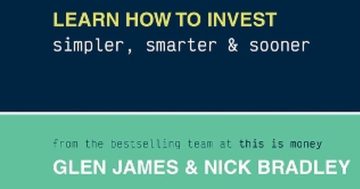Jasmine Wallis* outlines five easy ways to help people stick to their financial New Year’s resolutions.
 Setting New Year’s resolutions can be overwhelming. You’re likely still recovering from the year before (especially the last two), Christmas is barely over and come January 1, you’re made to feel like you must morph into your best self.
Setting New Year’s resolutions can be overwhelming. You’re likely still recovering from the year before (especially the last two), Christmas is barely over and come January 1, you’re made to feel like you must morph into your best self.
We get it.
But while New Year’s resolutions can put pressure on you, they can also give you the push you need to take control of your future.
One common goal? Getting on top of your finances.
According to Finder, 42 per cent of Australians vowed to save more money or reduce their spending habits in 2020.
Twenty-one per cent of millennials also made New Year’s resolutions to tackle their debt.
As Gen Z and millennials deal with stagnant wage growth, a COVID recession and rising house prices, it’s never been more important to learn financial education.
But how do you kick financial goals when 54 per cent of people drop their New Year’s resolutions by June?
Here are a few things to keep in mind when writing down those goals on December 31.
Why are you setting the goal?
Sometimes, it can feel like we’re jumping on the New Year’s resolution bandwagon because everyone else is.
The idea of a fresh start is motivating and after two standstill years, it can be inspiring to work towards something again.
One thing to ask yourself when focusing on financial goals is, why do you want to set them in the first place?
Do you want to pay off debt? Maybe you want to invest? Perhaps you’re looking to diversify your income.
No matter what it is, ask yourself ‘Why?’.
One of the main reasons that New Year’s resolutions fail is because the goal isn’t specific enough.
Once you’ve figured out your why, (i.e. more time spent with friends than working, to get rid of credit card debt, etc.), then set short-, medium- and long-term goals to help you achieve the big goal over the course of the year.
Be mindful of your past
Money management may seem straightforward, but it can be cloaked in emotion.
By acknowledging your past relationship with money, it can help you deal with any goal-based speed bumps throughout the year.
Financial education is layered in privilege, accessibility, how your family dealt with money, and so much more.
Investigating whether you have financial trauma and working with it rather than against it can mean the difference between reaching a New Year’s resolution or throwing in the towel in the second week of January.
Set achievable targets that work for your personal circumstances because finances are very personal.
Select your tools carefully
Unless you’re naturally a numbers person, managing your finances can be boring.
Necessary, but boring.
To ensure you stay on track, be selective about the resources you choose to engage with.
How do you like learning information in general? Do you read books? Watch webinars? Listen to podcasts? Rather than making it feel like a chore, choose educational resources that excite and speak to you.
Podcasts like Girls That Invest and You’re In Good Company are two financial education podcasts that tailor their content to women, making it feel like you’re hearing from a friend rather than a patronising finance bro telling you to put all of your savings into cryptocurrency.
Apps like Money by Afterpay can also help educate and inform you on financial tips and management styles.
Engaging with resources you enjoy using will help you remain motivated and willing to stay on top of your money management, rather than seeing it as a chore.
Keep yourself accountable
If a goal ends in a forest and no one is around to hear it, did it really end? It’s a cliché metaphor but the sentiment is there.
It’s much easier to give up on your goals when you haven’t told anyone about them.
Speaking about your New Year’s resolutions with people close to you can help you stay on track and may even be useful as you share advice and findings.
Posting about your goal of financial education on social media is also a way to hear from your community and put it out into the world.
Keeping yourself accountable can also be a way to feel less alone in your pursuit of money knowledge.
For example, taking a finance course with a friend means you get to spend time with them and have something to share.
While money is personal, sharing your goals with the world can keep you in check.
Take breaks
If you spend every Sunday morning looking through budgeting spreadsheets and reading textbooks on the stock market instead of taking time out for you, it can become easy to resent your goal – unless money study floats your boat.
While it’s been said it takes 10,000 hours to become an expert, Josh Kaufman, author of The Personal MBA, notes that to go from “knowing nothing to being pretty good” actually takes about 20 hours of practice.
Even dedicating one hour per week (or two 30-minute blocks) can help you become an expert in financial education.
Breaking your learning up like this will help you avoid going full throttle and burning out before we reach February.
As mentioned, money is personal and closely tied to our feelings of pride, shame and guilt.
If you have a money blow-out, don’t beat yourself up but see it as a learning process.
Even the best money educators make mistakes.
Hitting a bump in your New Year’s resolution doesn’t mean you should give up until next year comes around.
Enjoy the education process, take breaks and we have a feeling you’ll be more financially empowered come next December 31.
Please note that this information is general in nature and shouldn’t be construed as financial advice. Money by Afterpay is a product from Afterpay Australia Pty Ltd (ABN 15 169 342 947, AFSL 527911) with accounts and debit cards issued by Westpac Banking Corporation (ABN 33 007 457 141, AFSL 233714). T&Cs apply.
*Jasmine Wallis is a Journalist, podcast host, word-crafting copywriter, editor, producer and all-round media-slashie.
This article first appeared at refinery29.com.











